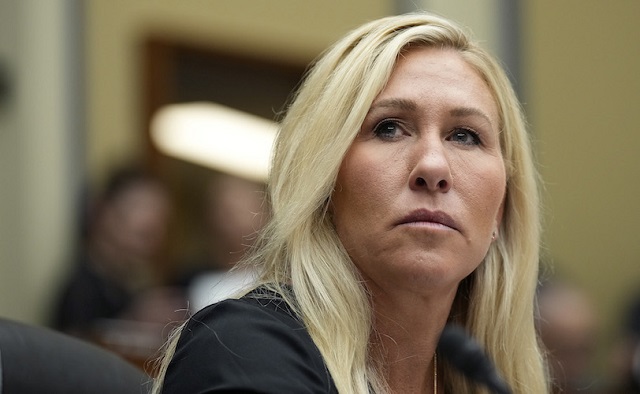Also Interesting
Canada’s Most Popular Sports By Region

Canada is very sports-loving and multicultural and every one of its regions has its own sporting culture and fans. Read on to take a trip from Alberta’s ice rinks to Ontario’s basketball courts and have a look at Canada’s most favored sports region-wise, paying particular attention to Red Deer.
British Columbia
British Columbia is renowned for its love of traditional and adventure sport and although hockey is always a staple of the province, due to the Vancouver Canucks’ loyal fan base, BC’s natural landscape means that it is a haven for outdoor sport enthusiasts. Skiing and snowboarding thrive in Whistler, one of the world’s premier winter sports resorts. Soccer, mountain biking and hiking dominate in the summer, with Vancouver’s mild climate allowing for year-round sporting activity. Lacrosse, BC’s official provincial sport, is also incredibly popular, particularly at the youth level.
Ontario
While hockey has been a staple for a long time, with the Toronto Maple Leafs leading one of the NHL’s flagship franchises, basketball has become more popular, in part because of the success of the Toronto Raptors. The Raptors’ 2019 NBA title win contributed to the province’s enthusiasm for the sport and basketball courts are now common across urban and suburban landscapes as is basketball betting on Ontario sportbooks platforms. Soccer is also a big sport in Ontario, as Toronto FC draws large numbers in Major League Soccer. Baseball is also well-represented by the Toronto Blue Jays and a strong minor league system.
Red Deer Region
Red Deer, in central Alberta, is a sports hub with a very very rich sporting history in hockey, rodeo, and so many other sports. Hockey, in particular, is a very deeply ingrained aspect of local culture, with minor hockey programs that are rich sources of talented players for junior and professional ranks. The city also plays host to premier hockey tournaments that draw teams from across Canada. Rodeo is undoubtedly also a massive aspect of Red Deer’s sporting culture, with events like the Canadian Finals Rodeo showcasing the city’s strong Western heritage. The city also has a developing soccer and football culture, with local leagues providing development for younger players. Red Deer’s proximity to the natural landscape also allows for the playing of sports like skiing, snowboarding and cycling, making it a well-rounded sporting region.
Alberta
Two of Alberta’s very most famous NHL franchises the Calgary Flames and Edmonton Oilers have bitter rivalries in pro hockey history. Albertans breathe hockey because of the regional climate and overall sports enthusiasm for the winter sport. Alberta has a strong rodeo heritage and it’s commemorated annually through the world-famous spectacle of the Calgary Stampede which really draws thousands of visitors annually. Football is a strong point in the province as Albertans follow both the CFL Edmonton Elks and Calgary Stampeders teams. The Canadian sport of curling has found immense success in all parts of Alberta because it is a major site for producing numerous national champions.
Saskatchewan
Saskatchewan has one of the most ardent fan bases in the CFL with the Saskatchewan Roughriders being hugely popular. Football culture is so very much ingrained in the province that Roughrider game days in Regina and Saskatoon are city-wide events. Hockey is also ingrained in Saskatchewan sports culture and many NHL players hail from the province. Saskatchewan’s community rinks are always super full, producing top talent for Canada’s hockey pipeline. Baseball has a small but consistent following as well, with competitive leagues operating all summer.
Manitoba
Hockey reigns supreme in Manitoba, due in large part to the loyal fan base of the Winnipeg Jets and with the cold winters and competitive provincial community leagues, hockey is a Manitoban way of life. Curling is also extremely popular in Manitoba and has yielded some of Canada’s finest curlers. Soccer has really been increasing in popularity in recent years, and with the introduction of Valour FC in the Canadian Premier League, Manitobans have another professional team to rally behind. The province also really proudly boasts a strong tradition of ringette, with youth leagues growing annually.
Quebec
Quebec has long been one of Canada’s hockey hotbeds, producing NHL legends and featuring a rich junior hockey footprint. That strong hockey heritage in the province is evident in teams like the Montreal Canadiens, who have one of the most dedicated fan bases in the sport. Soccer has really also taken off in popularity in Quebec, with CF Montreal competing in the up and coming Major League Soccer in Montreal. The province’s love of individual sports is also evident, with tennis and cycling gaining more popularity with young Quebec athletes. Winter sports like skiing and snowboarding are also hugely popular in the Laurentian and Eastern Townships regions.
Atlantic Canada
Junior leagues and community teams really define the hockey culture in the Atlantic provinces of Newfoundland and Labrador and the surrounding provinces of Nova Scotia and New Brunswick as well as Prince Edward Island. Professional basketball has become more popular in Atlantic Canada because of the Halifax-based professional team that competes in the Canadian Elite Basketball League. Sailing and rowing are popular water sports in the Atlantic coastal provinces of Newfoundland and Nova Scotia.
Also Interesting
Patterns of Play in Québec: How Smartphones Are Powering Online Casino Growth

Mobile has become the default screen for entertainment in Québec, from streaming to short-form video to bite-sized gaming. When I look at how people actually spend their downtime, it’s clear that the phone wins because it fits around life—on the metro, in a coffee line, or on the couch while a show runs in the background. In this post, I’ll break down why mobile-first habits are accelerating online casino growth, the features that keep players returning to their phones, and the practical settings that make play smoother and more intentional.
Why Québec Is Moving to the Small Screen
Phones shape behavior through short, repeatable “micro-sessions.” A spare two minutes turns into a quick spin, a side quest, or a daily check-in reward. This rhythm aligns with broader Canadian trends: internet and mobile use remain near-universal, and social-style engagement has trained us to prefer fast, thumb-driven loops. Reports tracking Canada’s digital life show high penetration of mobile connections and heavy social usage—both predictors of strong mobile gaming engagement.
Design also matters. Modern casino apps and mobile sites lift cues from social feeds—persistent nav bars, swipeable cards, haptic taps, and instant feedback. The result is a UX that feels familiar even if the game is new. Hybrid monetization (in-app purchases alongside ad-supported rewards or subscriptions) also keeps the experience flexible for different budgets and play styles.
Signals From the Gaming and Payments Ecosystem
Canadian gamers are increasingly incorporating mobile devices into their weekly routines. Recent coverage notes that a substantial majority of players use smartphones weekly for gaming, reflecting the convenience of pick-up-and-play formats. That preference supports casino-style content, where quick sessions and event-driven bonuses are efficient.
Payments are evolving alongside play. The latest national payments research highlights steady growth in digital methods and mobile-friendly transactions, with tap-and-go habits extending to in-app expectations. For players, this translates into faster top-ups, robust device security options (such as biometrics), and fewer abandoned deposits.
The Mobile UX That Keeps Players Engaged
Excellent mobile casino experiences share a few traits. First, they compress decisions: big buttons, readable odds and win potential, and minimal required text. Second, they personalize quickly—surfacing “recently played,” daily streaks, or seasonal events up top. Third, they respect session length, offering fast load times, one-handed play, and clear exit points, so it’s easy to stop when you planned to.
From my own testing and reviews, the stickiest flows do three simple things well:
- Surface momentum: Onboarding ends with a playable moment rather than a dead-end settings screen.
- Simplify payments: Wallets remember preferred methods and confirm with Face ID or fingerprint.
- Reward cadence: Progress bars, level-ups, and time-limited events make short sessions feel meaningful.
A Quick, Local Guide for New and Returning Players
If you’re exploring mobile options and want a single page that maps the landscape for Québec readers, start with a detailed guide to online casinos in Québec—it’s a straightforward overview of platforms, banking, and play considerations. The resource provides tools and comparisons that many readers find helpful, and it originates from Gambling Nerd Canada, a brand known for its practical breakdowns rather than hype.
Privacy, Performance, and Control on Your Phone
Before a long session, think like a power user. Turn on low-power mode, reduce background refresh for nonessentials, and enable biometric locks for your wallet app. Use notification summaries so bonuses and reminders arrive on your schedule, not in scattered pings throughout the day. If privacy is top of mind, note the broader consumer shift toward privacy-aware browsing and app choices—an indicator that many users want speed without sacrificing control.
Practical Settings I Recommend
Start with a one-time setup and revisit monthly:
- Biometric approvals: Fingerprint or Face ID for payments and account access.
- Focus modes: A “Play” focus that mutes noncritical apps prevents distraction.
- Data caps and Wi-Fi assist: Ensure stable play when switching networks.
- Notification batching: Keep promotional pings contained to a scheduled summary.
- Accessibility tweaks: Larger text and stronger contrast reduce mis-taps in fast games.
What’s New in 2026: Features to Watch
Mobile gaming in 2026 is doubling down on personalization and live-service content. Think dynamic events, social play hubs, and cross-platform syncing so you can pick up progress anywhere. Industry tracking points to hybrid monetization and more innovative analytics guiding these updates, which typically means more tailored offers and seasonal content drops. For players, the upshot is fresher content and smoother progression across short sessions.
Québec’s mobile-first reality isn’t about bigger screens or faster chips—it’s about how phones fit our days. Short, satisfying sessions, fluid payments, and personalized content make the experience feel effortless. If you dial in a few device settings and use trusted resources to compare options, you’ll get the convenience you want without the clutter you don’t.
Also Interesting
When Chats Drag On for Months and Go Nowhere – And What to Do About It

We’ve all had that one chat: lots of jokes, some flirting, maybe even deep talks… and yet you never actually meet. Or call. Or do anything.
It feels like something, but also like nothing. Let’s gently call it what it is: a situationship in your phone.
Why We Get Stuck in Endless Chatting
Some common reasons:
● Fear of rejection if you move it offline.
● It’s a comforting distraction when you’re lonely or stressed.
● You’re both busy and don’t want to prioritize each other yet.
● One or both of you like the ego boost more than the person.
Here’s a quick pattern table:
Pattern What’s usually going on
Lots of texting, no concrete plans Avoidance or low real-life interest
Strong flirting, zero follow-through Validation more than true intention
“We should meet sometime” on repeat Vague comfort zone, not real action
How Long Is “Too Long” Without Meeting?
There’s no exact rule, but for most people:
● 1–2 weeks of active texting → reasonable to suggest a call or date.
● 4+ weeks of frequent texting, zero effort to meet → something’s off.
If your “relationship” is starting to feel like a pen pal romance, it’s time to shift.
How to Move Things Forward (or End It)
You can keep it very simple:
● “I’m enjoying chatting with you. Want to grab a coffee next week and see how this feels offline?”
● “I’m not great at endless texting — would you be up for a quick video call sometime via online dating for singles?”
If they dodge vague excuses again and again, you have your answer.
Giving Yourself Permission to Let It Go
Ending a long chat connection can feel weirdly like a breakup, even if you never met. It’s still emotional energy.
You can say:
● “I’ve appreciated our chats, but I’m looking for something that can move into real life. I’m going to step back from this.”
Then mute, archive, or delete. And yes, you’re allowed to feel a bit sad and still know it was the right call.
Your Time Is Valuable
At the end of the day, your dating life is part of your actual life, not a separate mini-game.
You deserve:
● Conversations that lead somewhere
● Dates that feel safe, curious, and real
● Relationships (or explorationships) that respect your energy
-

 COVID-192 days ago
COVID-192 days agoTrump DOJ seeks to quash Pfizer whistleblower’s lawsuit over COVID shots
-

 Crime2 days ago
Crime2 days agoU.S. seizes Cuba-bound ship with illicit Iranian oil history
-

 Business1 day ago
Business1 day agoAlbertans give most on average but Canadian generosity hits lowest point in 20 years
-

 International2 days ago
International2 days agoMarjorie Taylor Greene’s ’60 Minutes’ interview reveals power struggle between populists and RINOs
-

 Censorship Industrial Complex1 day ago
Censorship Industrial Complex1 day agoOttawa’s New Hate Law Goes Too Far
-

 Business1 day ago
Business1 day agoTaxpayers Federation calls on politicians to reject funding for new Ottawa Senators arena
-

 Bruce Dowbiggin1 day ago
Bruce Dowbiggin1 day agoCarney Hears A Who: Here Comes The Grinch
-

 Daily Caller2 days ago
Daily Caller2 days agoUS Supreme Court Has Chance To End Climate Lawfare






